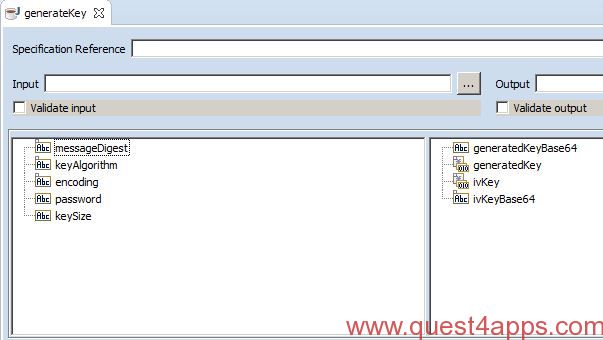Generate 128-bit Aes Secret Key In Java
- Generate 128-bit Aes Secret Key In Java Free
- Secret Key Indonesia
- Java Aes Key
- Generate 128-bit Aes Secret Key In Java Download
- Java Aes 256 Encryption Example
AES Key generator: Advanced Encryption Standard « Security « Java Tutorial. AES Key generator: Advanced Encryption Standard « Security « Java Tutorial. RandomKeygen is a free mobile-friendly tool that offers randomly generated keys and passwords you can use to secure any application, service or device. KEY RandomKeygen - The Secure Password & Keygen Generator.
- Java Cryptography Tutorial
- Message Digest and MAC
- Keys and Key Store
- Generating Keys
- Digital Signature
- Cipher Text
- Java Cryptography Resources
- Selected Reading
Java provides KeyGenerator class this class is used to generate secret keys and objects of this class are reusable.
To generate keys using the KeyGenerator class follow the steps given below.
Step 1: Create a KeyGenerator object
The KeyGenerator class provides getInstance() method which accepts a String variable representing the required key-generating algorithm and returns a KeyGenerator object that generates secret keys.
Create KeyGenerator object using the getInstance() method as shown below.
Step 2: Create SecureRandom object
The SecureRandom class of the java.Security package provides a strong random number generator which is used to generate random numbers in Java. Instantiate this class as shown below.
Step 3: Initialize the KeyGenerator
The KeyGenerator class provides a method named init() this method accepts the SecureRandom object and initializes the current KeyGenerator.
Generate 128-bit Aes Secret Key In Java Free
Initialize the KeyGenerator object created in the previous step using the init() method.
Example
Following example demonstrates the key generation of the secret key using the KeyGenerator class of the javax.crypto package.
If instead, you get the output: cat: /.ssh/idrsa.pub: No such file or directory, then you will need to create an SSH Key first. This key works as a 'pass' that allows to clone/pull your project in the current server, till this point it doesn't do anything, so you will need to follow the other steps. Ubuntu generate ssh key for github. You can create a SSH Key in Ubuntu via SSH with the following command (navigate to the.ssh directory first and type): ssh-keygen -t rsaTo make the process easy, we won't add a Keyphrase for the SSH Key, so as mentioned in the creation wizard just press enter to don't use a keyphrase:As shown in the image, we no have the idrsa and idrsa.pub file in our.ssh directory. For this you need to ensure that ssh-agent is enabled by running the following command: eval $(ssh-agent -s)Then you can proceed to add your key to the SSH registry using the following command: # Add your private keyssh-add /.ssh/idrsaTo retain these settings you'll need to save them to a configuration file. 2. Configure SSH client to find your GitLab private SSH in the serverAs next step you need to establish that, when cloning from Gitlab, the deployment key should be used as authentication instead of an username and a password.
Output
The above program generates the following output −
Secret Key Indonesia
The Java KeyGenerator class (javax.crypto.KeyGenerator) is used to generate symmetric encryption keys. A symmetric encryption key is a key that is used for both encryption and decryption of data, by a symmetric encryption algorithm. In this Java KeyGenerator tutorial I will show you how to generate symmetric encryption keys.
Java Aes Key
Creating a KeyGenerator Instance
Before you can use the Java KeyGenerator class you must create a KeyGenerator instance. You create a KeyGenerator instance by calling the static method getInstance() passing as parameter the name of the encryption algorithm to create a key for. Here is an example of creating a Java KeyGenerator instance:
Generate 128-bit Aes Secret Key In Java Download
This example creates a KeyGenerator instance which can generate keys for the AES encryption algorithm.
Initializing the KeyGenerator
After creating the KeyGenerator instance you must initialize it. Initializing a KeyGenerator instance is done by calling its init() method. Here is an example of initializing a KeyGenerator instance:
The KeyGeneratorinit() method takes two parameters: The bit size of the keys to generate, and a SecureRandom that is used during key generation.

Generating a Key
Once the Java KeyGenerator instance is initialized you can use it to generate keys. Generating a key is done by calling the KeyGeneratorgenerateKey() method. Here is an example of generating a symmetric key: